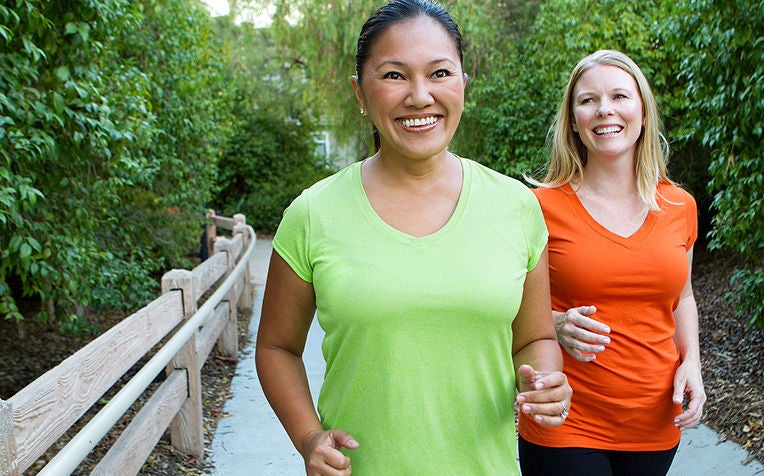
Managing knee osteoarthritis and knee pain requires a balance of engaging in frequent low-impact activities such as walking and good weight management.
Information provided by the Department of Orthopaedic Surgery at Singapore General Hospital (SGH), a member of the SingHealth group.
What can I do to manage knee osteoarthritis (OA knee)?
There is no scientifically proven method of stopping the progression of knee osteoarthritis (OA knee) as it is a degenerative condition that tends to progress as one ages. However, this does not mean that pain will worsen as you age. There are proven methods to manage knee joint pain.
The best way to reduce pain from knee osteoarthritis (OA knee) is to achieve a balance between activity and inactivity. Because #healthiswealth #healthforgood
1. Balance between activity and inactivity
- If you are not used to exercising, start with low-impact activities such as walking on flat ground, pool-based exercises such as walking in the swimming pool and stationary bicycling. These activities will help to gradually improve your mobility and strength.
- Avoid prolonged periods of sitting; be mindful to get up and move around regularly.
- Avoid sudden increases in activity or vigorous activities that you are not comfortable with.
- Do warm-up/cool-down before and after activities
2. Reduction of excessive loading forces across the knee, commonly termed ‘activity modification’
- Take regular sitting breaks between walking when necessary.
- Take regular breaks when doing housework.
- Wear supportive footwear when exercising.
- Avoid excessive high-impact activities like running or jumping if they cause discomfort.
3. Physiotherapy
There is strong scientific evidence that exercise relieves pain in the long-term and improves function in patients with knee osteoarthritis (OA knee). Your physiotherapist will perform a thorough assessment and guide you to strengthen your muscles and improve your flexibility so that you can move better with less pain.
4. Weight management
If you are overweight, losing 5-10% of your body weight may help to reduce pain and the load on your knees. Exercising regularly and having a well-balanced diet can help you maintain your ideal weight.
5. Minor injury prevention
- If you strain your knee, apply an ice bag to reduce the swelling.
- If you suffer a joint injury or persistent knee pain, seek medical treatment and take precautions to prevent further damage.
- Use aids such as canes or walkers to reduce some of the strain on the knee
6. Medications
Your doctor may prescribe medications to treat your osteoarthritis condition. Two types of medication are commonly used for OA knee: symptomatic medications and/or supplements.
- Symptomatic medications include pain-relieving tablets, topical gels, and plasters to be applied to the knee.
- Supplements include glucosamine or collagen-based tablets.
Glucosamine is a commonly prescribed supplement that helps to maintain cartilage health. Efficacy may differ from patient to patient; it tends to work better in patients with mild to moderate osteoarthritis.
Talk to your doctor about the pros and cons of treatment via medications for osteoarthritis.
Ref: L20
Other osteoarthritis articles you may be interested in:
Knee Osteoarthritis Treatment: Medication
Knee Osteoarthritis Treatment: Surgery
Related Articles
Conditions & Treatments
Public Events
Get the Health Buddy App
© 2025 SingHealth Group. All Rights Reserved.

















 Get it on Google Play
Get it on Google Play